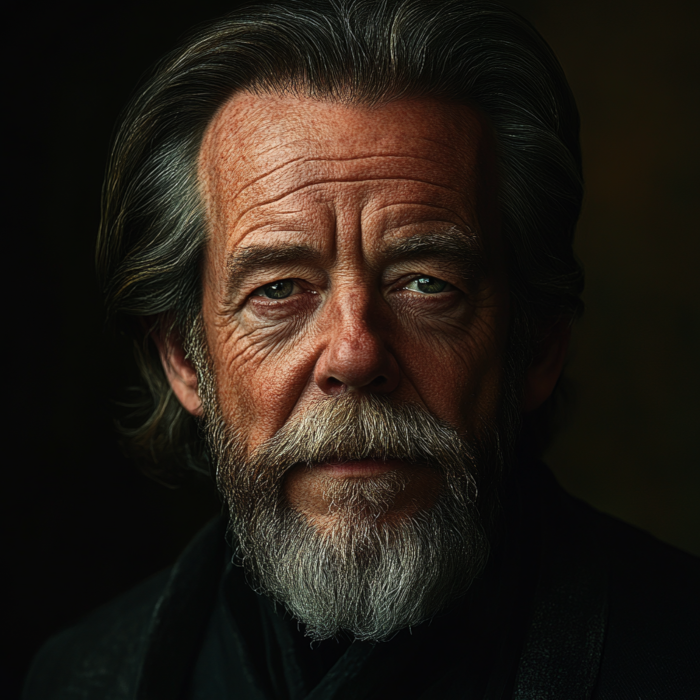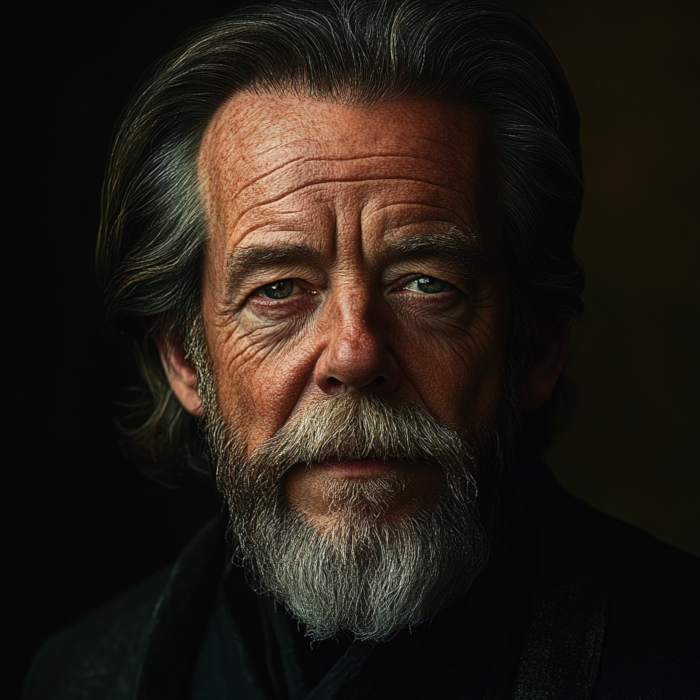


Alan Watts (1915–1973) was a British-born philosopher, writer, and speaker, best known for his work in popularizing Eastern philosophy and religion in the West. Through his books, lectures, and radio broadcasts, Watts introduced Western audiences to the ideas of Zen Buddhism, Taoism, and Hinduism, offering insights into the nature of reality, consciousness, and the self. His engaging style, deep understanding of Eastern thought, and ability to communicate complex ideas in an accessible way made him a leading figure in the countercultural movement of the 1960s and 1970s and continue to influence spiritual seekers and thinkers today.
Birth and Background: Alan Wilson Watts was born on January 6, 1915, in Chislehurst, Kent, England. His father, Laurence Wilson Watts, was a representative for the London office of the Michelin tire company, and his mother, Emily Mary Buchan, was a housewife with deep Christian beliefs. Watts was raised in a Christian environment, but he developed an early fascination with Asian art and philosophy, particularly Buddhism.
Education: Watts was an intellectually curious child, with a voracious appetite for reading and learning. He attended King's School in Canterbury, where he received a traditional British education. However, he was increasingly drawn to the mysticism and symbolism of Eastern thought. In his teenage years, he encountered the works of the influential British scholar D.T. Suzuki, who introduced Zen Buddhism to the West. Watts moved to the United States in 1938 to study theology at Seabury-Western Theological Seminary in Evanston, Illinois, where he earned a master’s degree in theology. He was ordained as an Episcopal priest in 1945.
Early Writings: Watts began his writing career in his early twenties with the publication of The Spirit of Zen in 1936, a book that sought to introduce Zen Buddhism to a Western audience. After moving to the U.S., he continued to explore Eastern philosophy while working as a chaplain and academic. However, he eventually left the priesthood in 1950, feeling that institutional Christianity was too rigid for his expanding spiritual views.
San Francisco and the Academy of Asian Studies: After leaving the priesthood, Watts moved to San Francisco, where he became a faculty member at the American Academy of Asian Studies (now the California Institute of Integral Studies). In San Francisco, Watts found a community that shared his interest in Eastern thought, and he became a central figure in the city's intellectual and cultural scene. He continued to write prolifically, producing works that delved deeper into Zen, Taoism, and other aspects of Eastern philosophy.
Notable Works:
Lectures and Public Speaking: In addition to his writing, Watts was an engaging and charismatic speaker. He gave numerous lectures across the United States and became known for his ability to explain complex Eastern philosophies in a way that was both accessible and thought-provoking. His talks often combined humor, wit, and deep philosophical insight, making them popular with a wide range of audiences.
Radio Broadcasts: Watts' popularity grew significantly through his radio broadcasts in the 1950s and 1960s on stations like KPFA in Berkeley, California. His shows reached a broad audience and allowed him to discuss topics ranging from Buddhism and Taoism to psychology, metaphysics, and the nature of reality. His voice became synonymous with the exploration of alternative spirituality during the countercultural movement of the 1960s.
Influence on the Counterculture: Watts' ideas resonated deeply with the emerging counterculture of the 1960s, which sought alternatives to mainstream Western values. His emphasis on living in harmony with nature, the exploration of consciousness, and the rejection of materialism and conventional societal norms struck a chord with those seeking spiritual and philosophical alternatives. Watts became a prominent figure among those interested in psychedelics, alternative religions, and the exploration of the self.
Personal Life: Watts' personal life was complex and sometimes tumultuous. He was married three times and had seven children. Despite his spiritual insights, he struggled with personal issues, including a lifelong battle with alcohol addiction. Nevertheless, those close to him often described him as a warm, witty, and generous person who lived his philosophy of embracing life’s mysteries and uncertainties.
Death: Alan Watts died on November 16, 1973, at the age of 58, at his home in Druid Heights, a bohemian community near Mill Valley, California. His death was attributed to complications from alcohol-related health issues. His ashes were divided, with some buried near his library at Druid Heights and others scattered into the Pacific Ocean.
Legacy and Influence: Alan Watts left behind a rich legacy of writings, lectures, and recordings that continue to inspire and educate people around the world. His books remain popular, and his recorded lectures are widely available online, often reaching new audiences interested in philosophy, spirituality, and the exploration of consciousness.
Cultural Impact: Watts is credited with helping to bridge the gap between Eastern and Western thought, making complex philosophical ideas accessible to the general public. His work has influenced a wide range of fields, from psychology and spirituality to literature and the arts. He remains a key figure in the history of modern spirituality and the popularization of Eastern philosophy in the West.
Continued Relevance: Watts' teachings on mindfulness, the nature of the self, and the importance of living in the present moment continue to resonate in contemporary discussions of mental health, spirituality, and personal growth. His ability to blend intellectual rigor with a profound sense of wonder and playfulness has ensured that his work remains relevant and widely appreciated.
Alan Watts was a pioneering thinker who played a crucial role in introducing and interpreting Eastern philosophy for Western audiences. Through his books, lectures, and broadcasts, he opened up new ways of understanding reality, consciousness, and the self. His insights into Zen Buddhism, Taoism, and other Eastern traditions continue to influence and inspire those seeking a deeper understanding of life and the human experience. Watts' legacy as a philosopher, teacher, and spiritual guide remains enduring, offering wisdom and inspiration to future generations.

We use cookies
We use cookies and other tracking technologies to improve your browsing experience on our website, to show you personalized content and targeted ads, to analyze our website traffic, and to understand where our visitors are coming from. Privacy Policy.